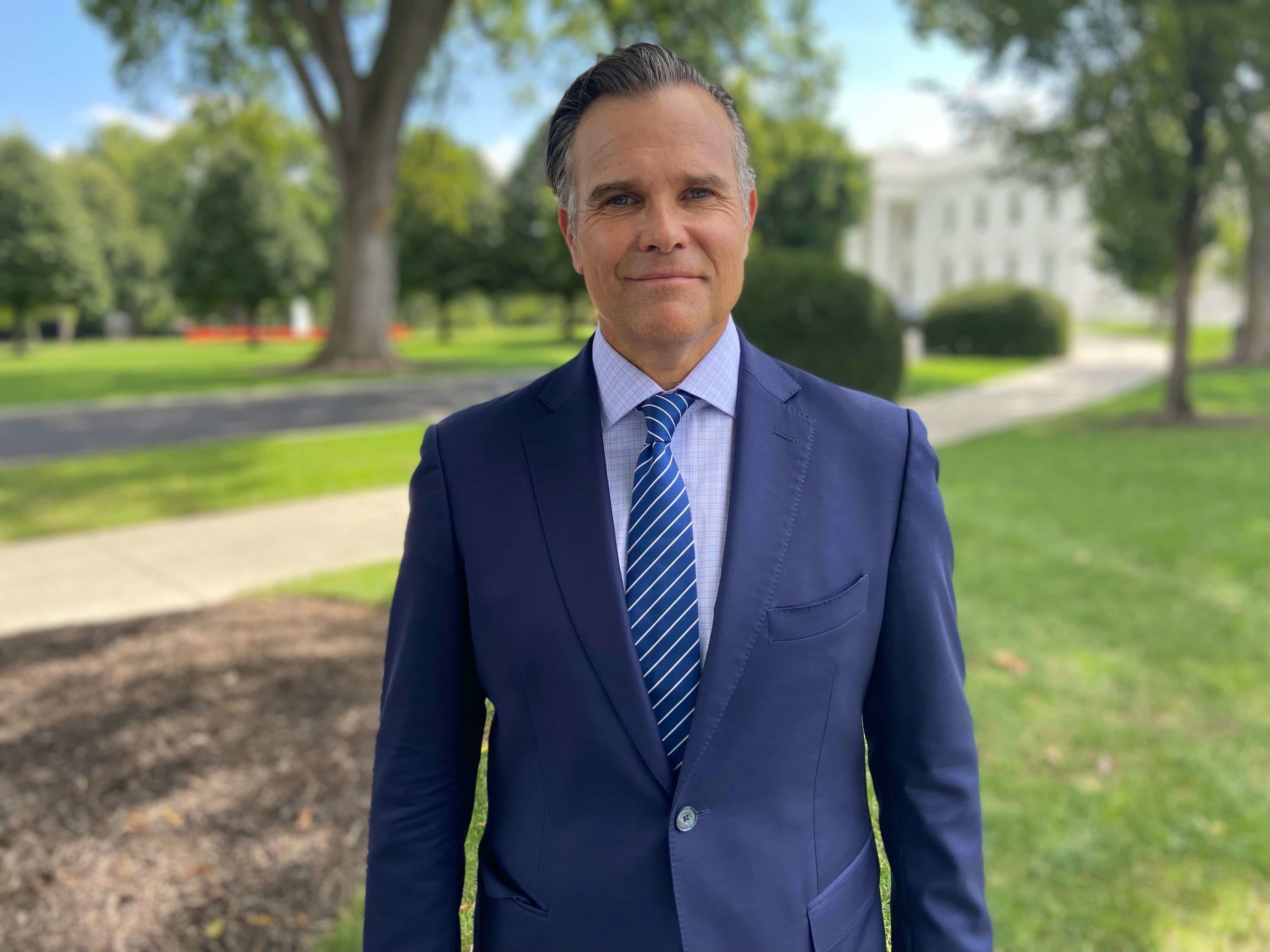Tips for Funding a Private School Education in Atlanta
The savings accounts you’ll want to consider as you make plans to pay for an education at one of Atlanta’s top private schools. read more

Relocating to a new city is a huge commitment—not just mentally and emotionally, but also financially. From funding the physical move to a new hometown to paying for the roof over your head and everything that daily life involves, money is always at the forefront of a major move. And the process begins well before you cross the threshold of your new residence and lasts long after you’ve settled into your forever home. Here, we ask financial advisor Justin Farmer, CEO of Exit Wealth (and former news anchor for WSB-TV in Atlanta), for his advice about how to get your financial house fully in order when you’re ready to call a city like Atlanta home.

What financial considerations should I think about first when planning a move to Atlanta?
There’s some initial homework you need to do. You first have to think about where you’re going to work and what part of town you want to target for where you want to live. Are you going to be in the city proper or are you considering a suburb? There are some pretty large property tax variations depending on what part of the greater metro area you’re choosing. Also, Atlanta is an automobile-dependent city, and you need to account for the expense that comes with a commute, including the wear and tear on your vehicle, the gasoline and more. If you prefer living closer in to the city, do you want to live near the Beltline or Chastain Park? You need to try to define how you want to live your life, how you picture yourself living your life in your new city of Atlanta, and make decisions from there.
How should I prepare my finances before my move?
The period heading into your move is a great time to declutter your life financially. Try to cut some expenses, like subscriptions you don’t use anymore and won’t use once you’re in the Atlanta area. Get rid of credit cards that aren’t used and close any bank accounts that you’ve left open that just have a small balance. See if you can build a little savings account for yourself not just for the direct expenses of a move, but also for when you get to your new place, which you may want to spruce up. Account for the fact that you’re going to be excited about your new place and that you may want a bit of money for a new welcome mat or some wallpaper. Also, when it comes to your moving expenses, you can prepare for that. Declutter and clean out your closets; it will lower the cost of moving. You can also go online and purchase inexpensive moving boxes and some packing tape and begin packing yourself; don’t rely on the movers to do everything because it’s very expensive. Knock out some items that you don’t need them to do.
What should I do regarding my finances when I arrive in town?
I would make a point of getting a financial advisor. Even if you’re young and feel like you don’t have enough money yet to need that kind of professional, I would respectfully disagree because you can always get your financial house in order. It’s not just about investing; your finances may be tight when you get to town, and a good financial advisor can give you really sound advice on setting up your whole living situation. Should you lease a car or buy one? Do you own your own business or did you just take a job with a new firm? How do you want to set up your 401K or should you think about an IRA? Is it time for you to start thinking about starting a 529 savings plan if you are building a family or you already have children? You’re starting a new chapter in your life in a new town. If you can get these decisions made, then it’ll lower your stress and you can focus on building a new community of colleagues and friends—and there’s a lot of joy in that.
Who else should be on my financial team?
At a minimum, you’ll want to meet a banker. There’s so much digital banking now, and that’s great for convenience, but I think it’s nice to be able to go into a branch, even once or twice a year, and have a human being you can talk to about a car loan or other financial needs. If you have a good financial advisor, they are pretty well tied into their communities and can be extremely helpful to you in recommending a bank. They can also recommend a good insurance professional; make sure that you’re properly insured for home, life and auto. A really good insurance agent can again alleviate your stress because if you can sort out your insurance needs and get your financial foundation in order, then you can have more success in the kinds of things you want to achieve in your new town.
What do I need to know about the cost of living in Atlanta?
 If you’re coming from New York or California, you’re going to feel like you’ve hit a home run here. Your state income tax in Georgia will be much lower than in a state like New York. Your city taxes and other municipality taxes will be lower as well. If it’s a lateral move or if you’re coming from a more rural area or state, then Atlanta is going to feel pretty expensive. Some states like Arizona, Florida and Texas have no state income tax; Georgia does have a small income tax. But we’re also such a large and diverse metropolitan area, and so much of it depends on where you live, that it just depends. Our cost of living in Atlanta is on a massive scale of variety. You can live inexpensively in some parts of town, and it can be quite expensive to live in other parts of Atlanta. It’s all relative.
If you’re coming from New York or California, you’re going to feel like you’ve hit a home run here. Your state income tax in Georgia will be much lower than in a state like New York. Your city taxes and other municipality taxes will be lower as well. If it’s a lateral move or if you’re coming from a more rural area or state, then Atlanta is going to feel pretty expensive. Some states like Arizona, Florida and Texas have no state income tax; Georgia does have a small income tax. But we’re also such a large and diverse metropolitan area, and so much of it depends on where you live, that it just depends. Our cost of living in Atlanta is on a massive scale of variety. You can live inexpensively in some parts of town, and it can be quite expensive to live in other parts of Atlanta. It’s all relative.
I want to own a home. What can you tell me about mortgage rates in Atlanta?
My favorite phrase about mortgage rates is, “Date the rate, marry the house.” Mortgage rates are elevated right now. We all got spoiled after the pandemic with people getting two and three percent mortgages. Those days are gone. Right now, 30-year mortgage rates are right around seven percent. That’s painful, but I don’t think those rates are going to stick around forever. I think a five percent rate would be very attractive, but we’re not there yet. But if you find a house that you are excited about, go ahead and get it. Pay the higher mortgage rate; it may be uncomfortable for 24 months. But get the home you want and then watch for those rates to tick down and refinance. Don’t rent for six years waiting for mortgage rates to come down. If you find a place you can afford, date the rate and marry the home.
What should I know most about my financial prospects in metro Atlanta?
Atlanta done right is a wonderful place to live. Part of the strength of our city is the diversity of our economy. I think that sets us up so well for the next multiple decades. With such a vibrant economy, if you want work, you can find work. There are so many fields you can be in, we have a huge EV ecosystem; we have tech, the medical industry, the financial payments industry, a robust real estate market and so many high-quality labor-oriented jobs. You should be very optimistic about your future here. Use this new chapter in a new town to do a health check on your finances. If you get onto a smart path forward with your financial health, then you can set up the next decades of your life and think, “I’m so glad I moved to Atlanta.”
For more information, visit Exit Wealth.
The savings accounts you’ll want to consider as you make plans to pay for an education at one of Atlanta’s top private schools. read more
If you are in the market for purchasing a home, chances are you will attend quite a few open houses. The housing market is as hot as ever as listings seem to disappear as quickly as they arrive, leaving home buyers feeling the need to have multiple options. As you step into an open house, here are some ideas to keep in mind. read more
